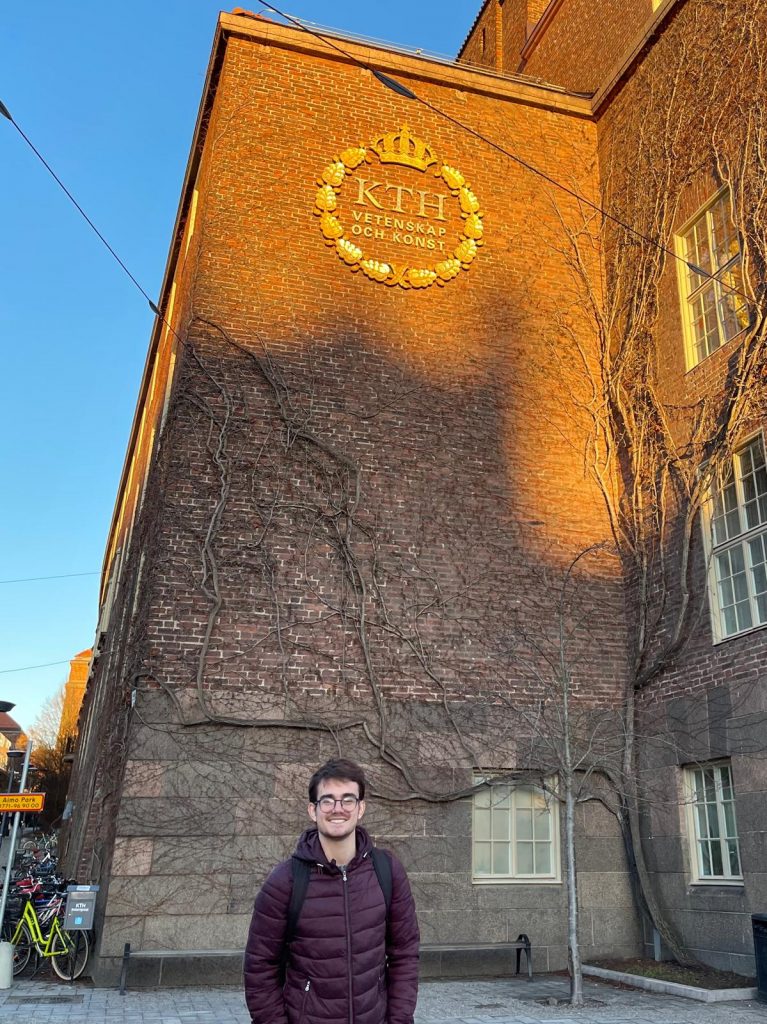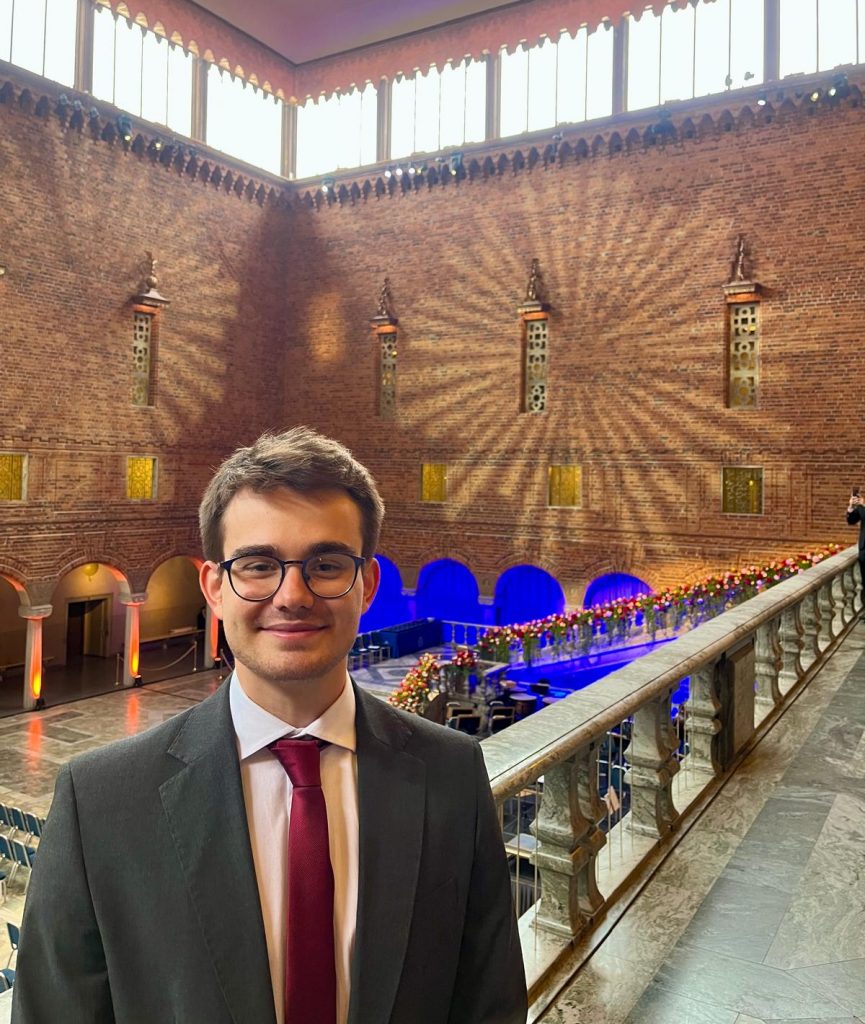Alessandro Riva – Double Degree at KTH, Stockholm
What differences did you observe between the educational system of the host university and that of your home institution, particularly with regard to technical courses such as control, automation, or robotics?
The two universities have very different teaching styles. At Politecnico di Milano, the focus is predominantly on theoretical aspects, whereas at KTH in Stockholm all courses are accompanied by weekly projects or assignments. The control and robotics courses I attended allowed me to apply theoretical knowledge and also to learn the practical aspects, such as testing control algorithms on real mobile robots available in the university laboratories. A final exam is almost always present, but it constitutes only a part of the overall assessment.
How did the mobility experience contribute to expanding your technical and/or practical skills in the field of automation and control? Did you have access to laboratories, projects, or particularly relevant technologies?
Studying at KTH enabled me to broaden my practical knowledge during the courses. The university offers state-of-the-art laboratories in the field of robotics and smart mobility, which I had the opportunity to explore both during lectures and in the thesis phase. In particular, in one of the courses I collaborated with other colleagues in the development of autonomous driving algorithms, which were tested directly on an autonomous radio-controlled car. This project allowed me to significantly deepen my understanding of implementation aspects as well. In addition to the courses, I had the opportunity to collaborate with the robotics laboratory during the summer, contributing to its advancement by integrating new sensors and a more advanced computer system.


Did you have the opportunity to work on international projects, in multicultural teams, or with professors/researchers of other nationalities? If so, what did you learn from these interactions, also in terms of soft skills?
KTH in Stockholm is a highly international environment: many of my professors were not Swedish, and more than 30% of the students are international. In every academic project, I had the opportunity to collaborate with both Swedish students and classmates from other countries, enriching my perspective and teamwork skills. Outside the academic sphere, there are many associations and university groups, ideal for making new friends. Among these, I took part in a student association run by international students, involved in organizing welcoming activities for the new international students who arrive in Stockholm every year. Living in such a dynamic and multicultural context helped me to get to know and value different cultures, enhancing my ability to collaborate and work in a team.
From a personal perspective, what were the main challenges you faced during your time abroad and how do you think they affected your academic and personal growth?
Living abroad is a significant personal challenge: moving alone to a country you do not know, without speaking the language, was daunting at first. This experience forced me to step out of my comfort zone, resulting in a period of great personal growth. Thanks to its highly international environment, KTH offers many opportunities for students to meet each other, helping them to build new friendships and create a sort of “family” away from home during their time abroad. Through these events, I met many friends with whom I shared my experience, which also allowed me to experience the academic side more positively. These friendships remain even after the international experience comes to an end.
Would you recommend this experience to other students of Automation and Control Engineering? What aspects do you consider most relevant before undertaking an international mobility program?
I strongly recommend everyone to undertake a study experience abroad, whether it be a short mobility such as Erasmus or a longer double degree program like mine. It is a valuable opportunity for academic and, above all, personal growth: it teaches you to adapt to a different academic system and a different lifestyle. From a practical point of view, before leaving, it is useful to gather information about the academic offer of the host university, in order to find courses that are both compatible with those offered by Politecnico and complementary to Politecnico’s academic offering.
What does the double degree program involve, and how does it differ from the Erasmus program?
Compared to the Erasmus program, the double degree track is longer and requires you to take a greater number of exams at the host university. In my case, I replaced the entire second year of my Master’s degree with a one-and-a-half-year period at KTH, during which I took exams that were later recognized by Politecnico, as well as additional technical courses and Swedish language courses. One of the hallmarks of the program is the joint supervision of the thesis project by professors from both universities, with the final defense taking place at both institutions. At the end of the program, you also obtain the degree from the partner university. I fondly remember the graduation ceremony in Stockholm: a special moment to celebrate this important milestone.